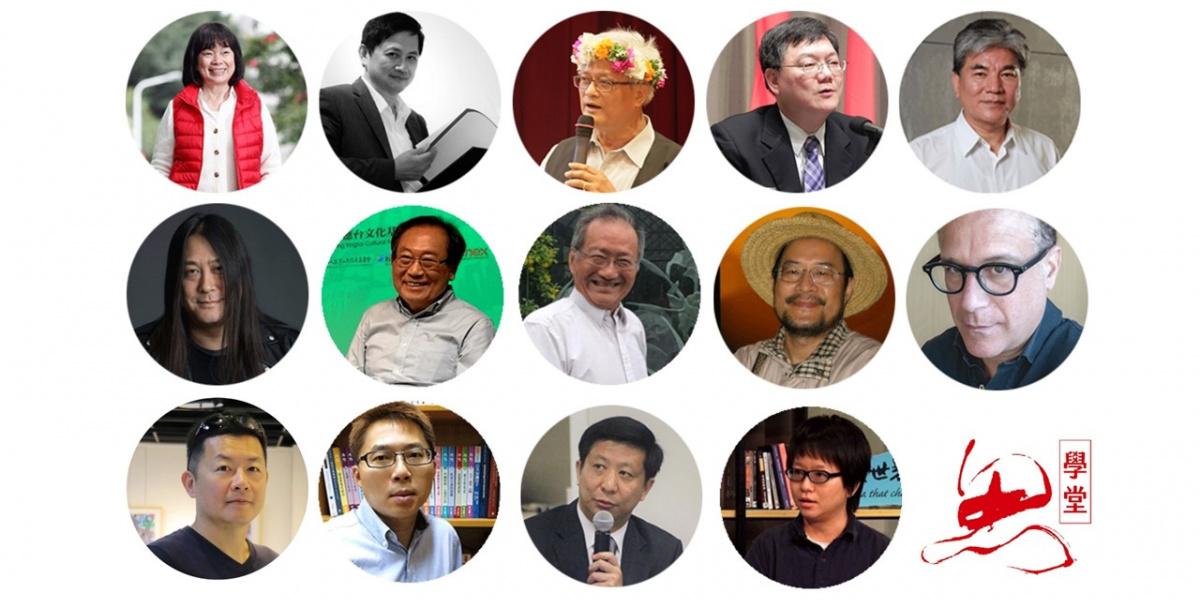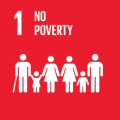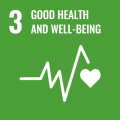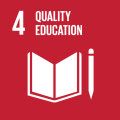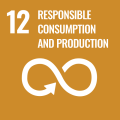“Preparing for 2030”, an Experimental Class by Thinker School on Critical Thinking
"The world is ever evolving; how do we prepare for the future?"
"Without compassion and an open mind, democracy would be in vain."
In light of the Lung Yingtai Cultural Foundation's commitment to cultivating a global perspective in Taiwan's youth, "Thinker School" (思學堂) was launched in January 2022. The content includes sustainability, democracy, technology, and the future. It was a five-day, four-night workshop in Taitung, attended by 40 youth under 25 (including three high schoolers from Junyi) and 14 distinguished speakers from various fields.
The program theme was "Preparing for 2030." This is in response to the United Nations' 2015 Sustainable Development Goals (SDGs), which consist of 17 goals covering three major dimensions: economic, social, and environmental. 2030 is important for academics, governments, and advocacy organizations to reflect on mankind's future.
The Seed in the Heart of the Youth (opening statement: Tzu-hsien Tung)
Today's social elites were young once. The program especially invites Tzu-hsien Tung, Chairman of Pegatron Corpto, to deliver the opening statement. When Tung was young, he often participated in literature camps, where youth gathered to discuss literature, art, social issues, and politics; his youthful passion was extraordinary. Tung served as the school paper's editor when he was in college. In 2009, Tung supported the launch of Fisfisa Media (目宿媒體) with a mission to preserve the heritage of writers who influenced multiple generations of Taiwanese literature. In 2015, he co-founded The Reporter (報導者) through public fundraising to avoid commercial influence and conduct in-depth social issue reporting. In 2007, Lung Yingtai, Kimbo Hu, Stanley Yen, and friends worked together to oppose the Suhua Highway Improvement Project building. This effort prevented people from speculating on monetary land value in anticipation of transportation development, resulting in the loss of land by the locals and profiting the elite few land speculators.
A youth's dream of the future drives their subsequent behavior and direction. Tung encourages youth to open their hearts and remain optimistic, care about important issues, keep learning, and reflect often.

Starting with the Music on both sides of the strait (First night: Chung Yung-Feng) The keynote of the first night was delivered by award-winning lyricist Chung Yung-Feng, on a message relatable with the youth: one may understand an era by observing the trend of popular Music. However, when he mentioned the names of famous Chinese singers such as JiuLianZhenRen (九連真人), Tan Weiwei (譚維維), most people in the audience had not heard of them. Aren't we in the era of social media? Or have we confined ourselves in our echo chamber? Chung, trained as a civil engineer, has served as director of the Bureau of Water Resources in Kaohsiung County and Commissioner of Taipei City's Department of Cultural Affairs and has ample experience handling voices of "position." He believes that dialogue should be based on various perspectives and broad vision and that potential dissonance from conflicting views can sometimes contribute to a more well-rounded analysis. The dialogue process is not about expressing one's opinion but about contemplating through listening. Previously, there were three major newspapers in Taiwan. They each took their position, but ultimately, readers could form their viewpoints. With today's information being dominated by social media, the landscape of journalism has changed.
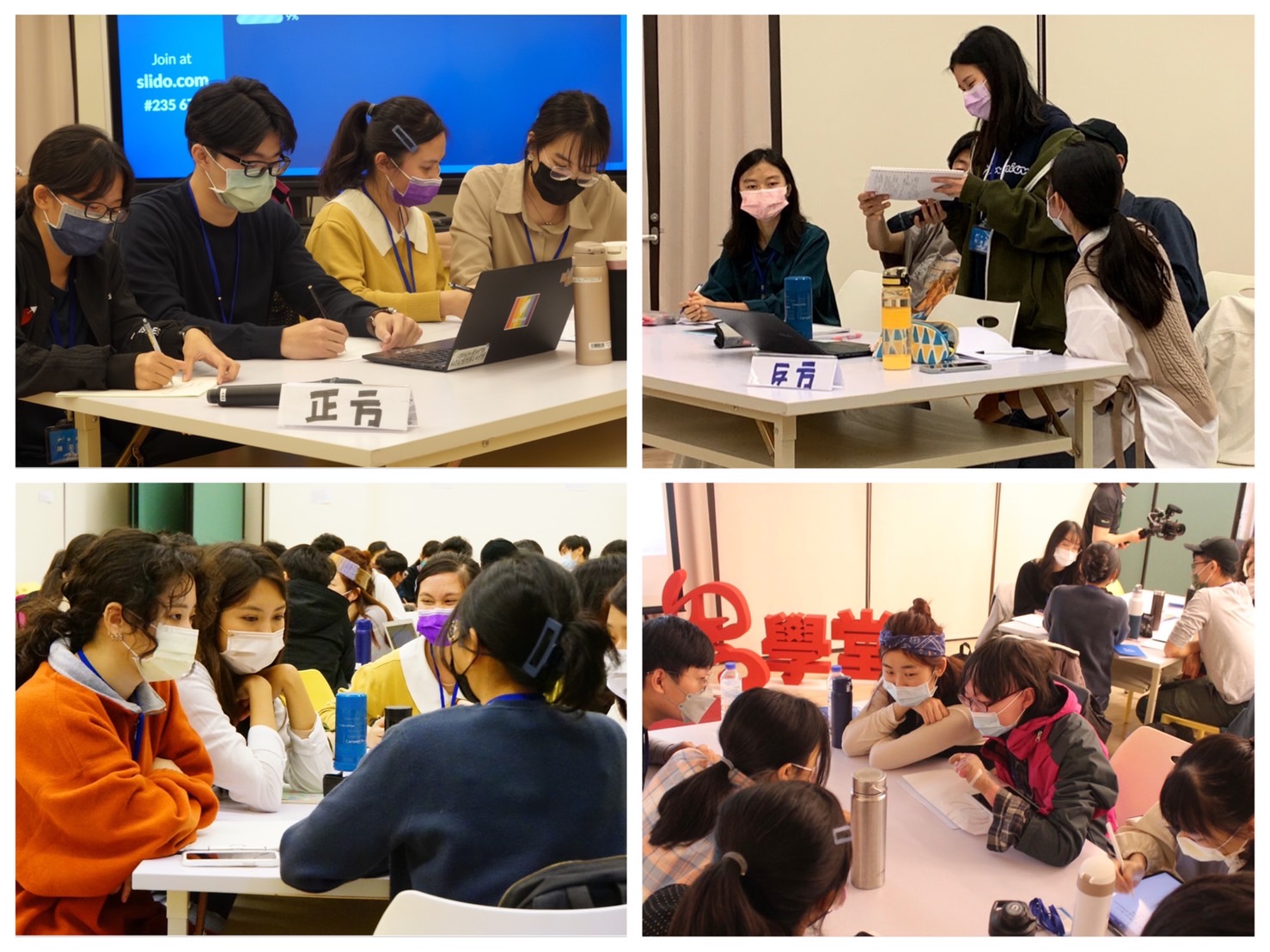
Deliberately Take the Opposing View – A Critical Thinking Exercise
Lung's critical thinking class is based on the topic "enmity and Friendship" from the book "Encounter" by the Czech-French author Milan Kundera. It's about friendship and politics: what to think when friendship conflicts with political beliefs. Lung begins the class by asking questions about the source of information, such as who the author is. What era is he from? What types of social transformations has he experienced? Lung notes that validating the source of the information, knowing the author's background, and objectively identifying the facts before reading will enable you to grasp the content better and objectively consider it.
This was followed by a discussion on current affairs. Lung based the discussion on a news article involving the author, J.K. Rowling. Since 2020, J.K. Rowling has publicly expressed her views on gender issues, stirring controversy in Europe, the English-speaking showbiz community, and literary circles. Lung presented J.K. Rowling's original text and related public remarks from social media so that the students could understand her point of view and reasoning. Next, the public opinions opposing her view were presented so the students could defend the opposing view with supporting examples. Everyone would have contemplated J.K.'s perspective and that of the opposing view. As in many critical thinking discussions, the teacher does not look for opinions from the students but focuses instead on where the diverse voices and ideas come from. How are they expressed? Can there be other forms of expression? Let "critical thinking" "be about the "process" rather than the "result" of judgment.
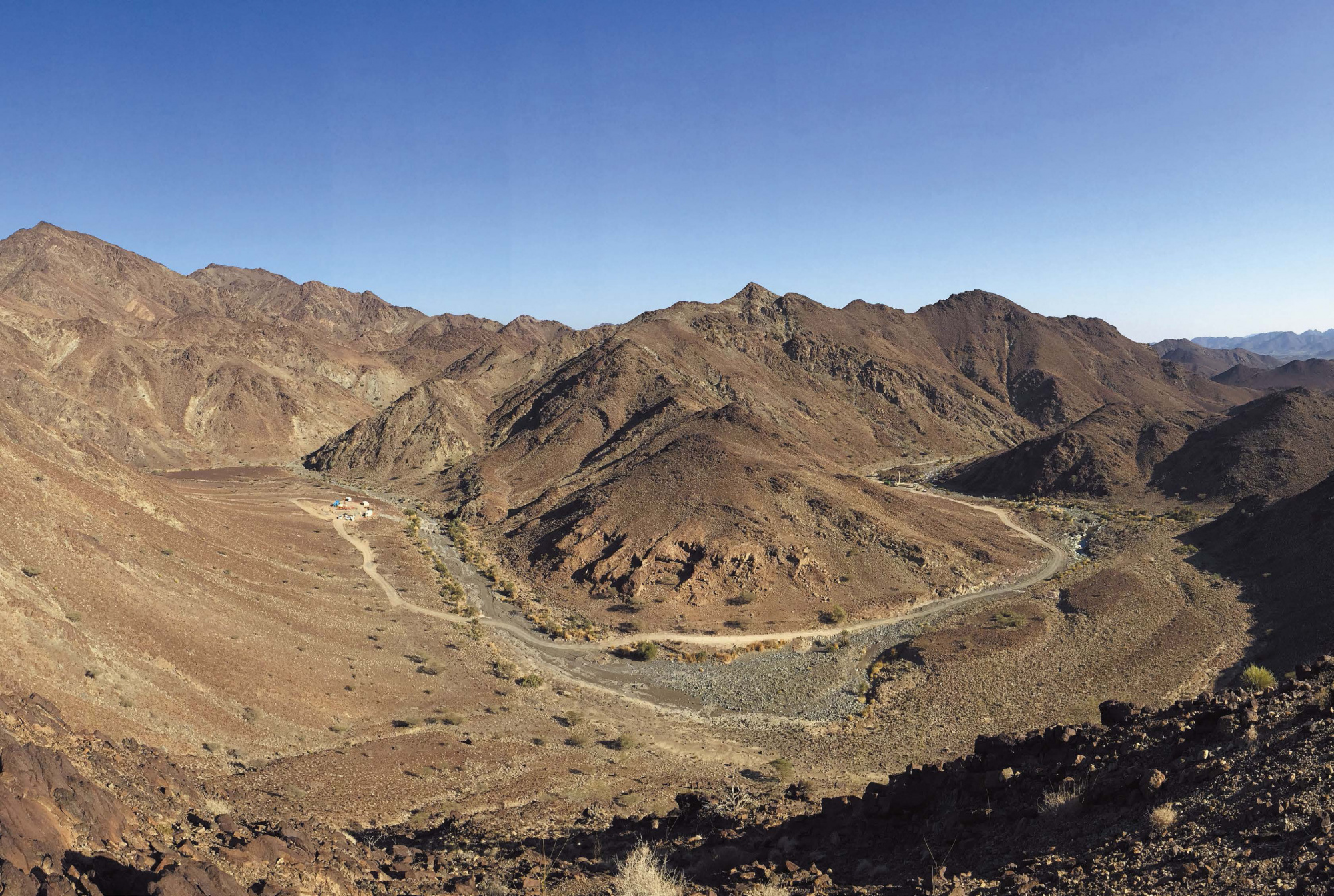
Sustainability
When humans cease to exist, there will be no point in talking about sustainability. Editor in Chief, Chinese Edition of SCIENTIFIC AMERICANChia-Wei Li, Ph. D., shared a cutting-edge technology," the Carbon Rocks of Oman." On the Arabian Peninsula, in Oman, scientists discovered vast mantle rocks with strong carbon sequestration capacity. The scientific community is trying to capture carbon dioxide in the atmosphere and collect it as water vapor, and then pour the water into the ground to mineralize carbon dioxide. If this becomes a solution to the carbon emissions problem, it will require a huge infrastructure involving not only technology but also cross-domain expertise and policy.
"The future generations must adapt to multi-discipline learning," said former minister of the Interior, Hong-Yuan Lee, who had worked on the frontline of national land planning. Lee shared that if Taiwan is to achieve sustainable development and balance between urban and rural areas, then all regions must agree to integrate and share resources. This requires cross-discipline dialogue and functional integration. He also stated that energy and land issues should not be voted upon, but today, we seem to have been taken hostage by democracy.
While looking into the future, one can't help but wonder what the world was like before the concept of State, let alone science and technology. The program thoughtfully arranged a field visit to Beinan Cultural Park, a prehistoric relicsandPinaski Tribe in Beinan Township, which was a former minister of the Council for Indigenous Peoples and former President of the Control Yuan Ta-Chuan Sun'sbirthplace. Sun made everyone rethink the meaning of modern economy, technology, and culture. Humanity fundamentally identifies with the unit of a tribe, within which people maintain emotions and moral norms while co-existing with nature. While contemplating the topic of sustainability, one must bear in mind the most primitive ways humans help each other, their gratitude for the land, and their reverence for nature.
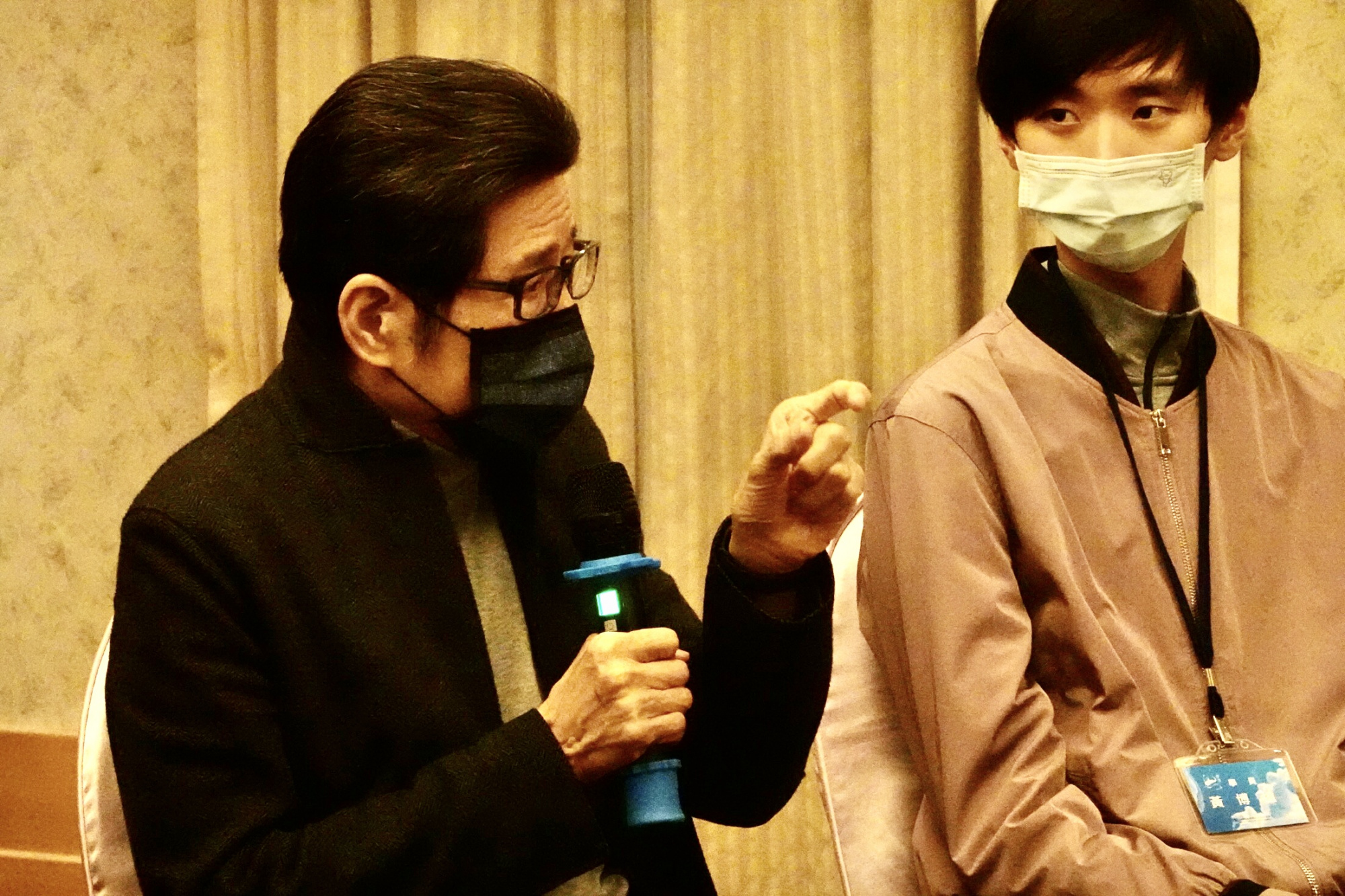
AMA (Ask Me Anything)
The AMA session on the third evening was not on the agenda, and it was a planned surprise! Lung Yingtai, Ta-Chuan Sun, Kimbo Hu, and Stanley Yenall appeared to take questions from the audience. As approachable as they were, the students were still inevitably timid about speaking up. This question was addressed to Yen: "What can our generation do about the education system?" Yen shared Junyi's philosophy and quoted R. Buckminster Fuller: "You never change things by fighting the existing reality. To change something, build a new model that makes the existing model obsolete." Before the AMA came to an end, Hu sang for the students. The spirit of his voice lit up the audience." Regardless of the occasion, Music is always relevant; art brings people together." Said the research assistant of Academia Sinica Yu Hsuan, Liu, a pianist.
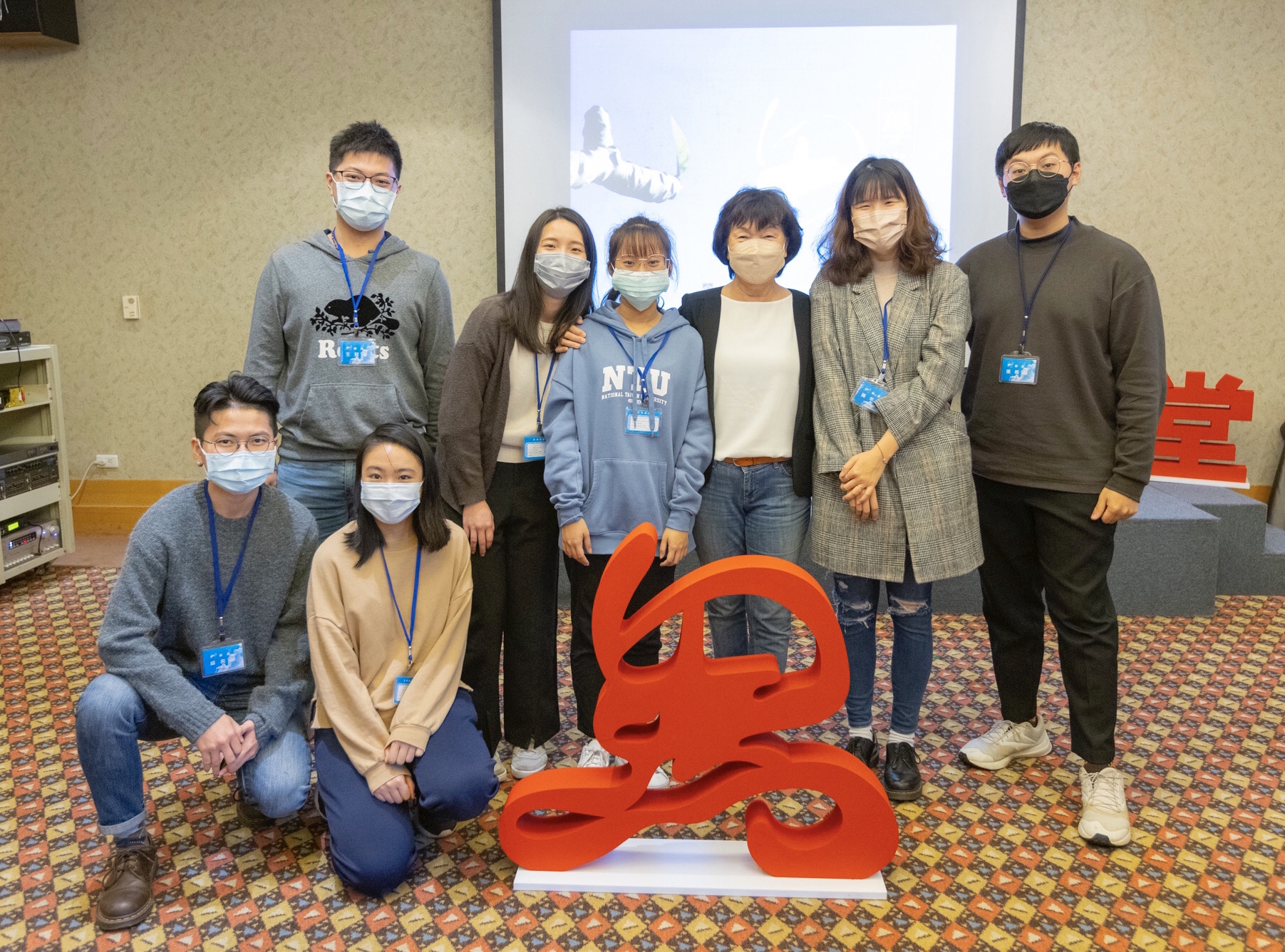
Youth are a Part of the Mainstream
The youngest attendee, a 10th grader from Junyi, shared her experience.
At first, I hesitated to speak up because I feared I would waste everyone's time by asking irrelevant questions. An older girl from my table kindly encouraged me. She was always active in discussions and inspired me to ask questions. Even if I could not fully understand the answers, I gradually found the confidence to be part of this group of my seniors. I felt privileged to be among this knowledgeable and experienced group, and I felt they took care of me well. Reflecting on my past mindset, perhaps for fear of making mistakes, I was too passive and pessimistic. This reminds me of what Mr. Sun said: "Human society is a gift for self-reflection. By being a part of it, one would be humbled while finding the meaning of one's existence." While working on the presentation on "How activists combat digital authoritarianism," I found that my group presentation experience in Junyi had prepared me well. I was able to contribute interesting ideas and meaningfully participate even on topics I had little knowledge of.
She found the lecture on sustainability by Lee to be the most impressionable. "r. Lee touched upon topics I had not been aware of, such as converting a sewer system into an aesthetic landscape. The professor used illustrations that were easy to understand. The solutions often require cross-discipline knowledge, which presents a challenge."


